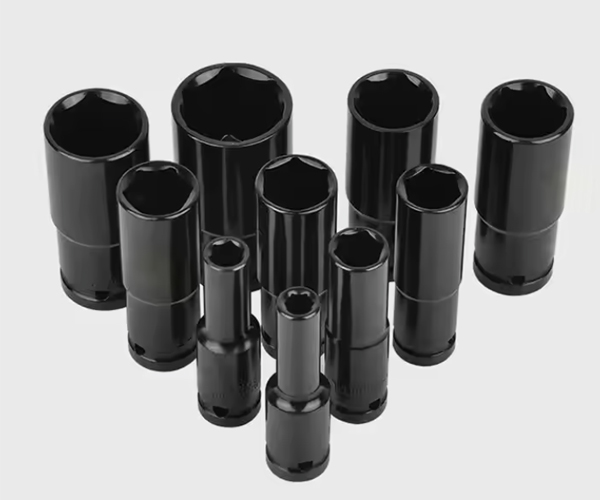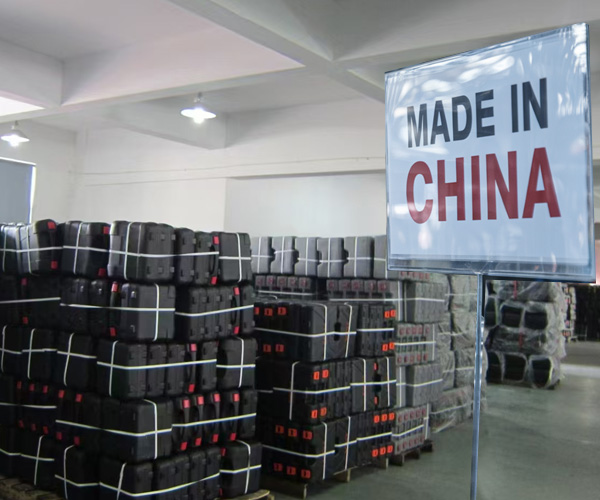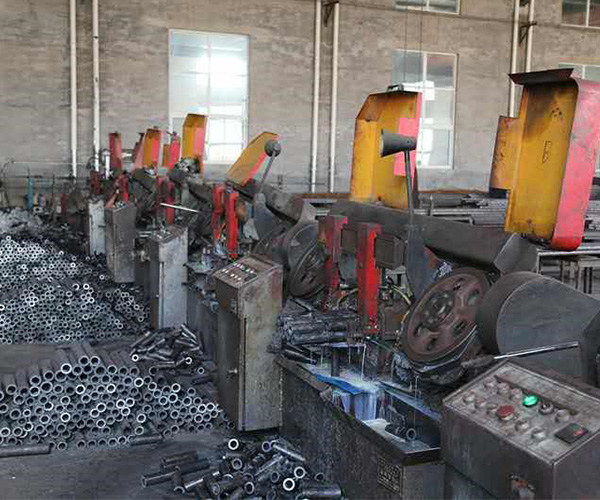Introduction
Screwdrivers are indispensable tools in any toolbox, whether for professional or personal use. From assembling furniture to repairing electronics, screwdrivers serve a wide array of functions. However, not all screwdrivers are created equal. Among the various types available, regular screwdrivers and precision screwdrivers stand out due to their specific applications and design differences. Understanding these differences is crucial, especially when precision is paramount. This article aims to provide an in-depth exploration of the distinctions between regular screwdrivers and precision screwdrivers, highlighting why choosing the right tool is essential for achieving the best results. Additionally, we will touch on the significance of selecting quality tools from reputable precision screwdriver manufacturers in China and other key producers.
Understanding Screwdrivers
Definition and Basic Function

A screwdriver is a manual or powered tool used for driving screws into a material. It typically consists of a handle and a shaft, with a tip designed to fit into the head of a screw. The basic function of a screwdriver is to apply torque, enabling the screw to be inserted or removed with ease. Screwdrivers are essential in various tasks, from simple home repairs to complex industrial applications.
Types of Regular Screwdrivers
Regular screwdrivers come in several types, each designed to fit a specific type of screw head. The most common types include:
- Flathead (Slotted) Screwdrivers: These have a flat tip and are used with screws that have a single, straight recess across the head. They are among the oldest and most widely used screwdrivers.
- Phillips Screwdrivers: Recognizable by their cross-shaped tip, Phillips screwdrivers are designed to fit screws with a corresponding cross recess. This design allows for better grip and reduces the chance of the screwdriver slipping out of the screw head.
- Torx Screwdrivers: Featuring a star-shaped tip, Torx screwdrivers are used with screws that have a six-point recess. They provide excellent torque transfer and are commonly used in automotive and electronics applications.
- Robertson (Square) Screwdrivers: These have a square tip and are often used in woodworking and cabinetry. The square shape provides a secure fit and reduces the risk of cam-out.
- Hex (Allen) Screwdrivers: Used with hexagonal screws, hex screwdrivers are common in furniture assembly and mechanical applications.
Materials and Construction
Regular screwdrivers are typically constructed from durable materials to withstand the forces exerted during use. The shafts are usually made of hardened steel to resist bending and wear, while the handles are often made from plastic, rubber, or wood for a comfortable grip. The quality of materials and construction can vary significantly, affecting the tool’s performance and longevity. High-quality screwdrivers from reputable manufacturers tend to offer better durability and precision, making them a worthwhile investment for both professionals and DIY enthusiasts.
Understanding Precision Screwdrivers
Definition and Basic Function
A precision screwdriver is a specialized tool designed for tasks that require a high degree of accuracy and control. Unlike regular screwdrivers, precision screwdrivers are used for delicate and detailed work, such as repairing electronics, eyeglasses, watches, and other small devices. They are essential for tasks where the screws are tiny and the work area is confined, requiring precise handling to avoid damage.

Types of Precision Screwdrivers
Precision screwdrivers come in various types to match the different screw heads found in small devices:
- Miniature Flathead Screwdrivers: These are smaller versions of the regular flathead screwdriver, designed for use with tiny slotted screws.
- Miniature Phillips Screwdrivers: These feature a smaller cross-shaped tip for Phillips screws found in electronics and small appliances.
- Precision Torx Screwdrivers: Used with miniature Torx screws, common in electronics, computers, and automotive components.
- Precision Hex Screwdrivers: These have small hexagonal tips for screws used in electronics and mechanical assemblies.
Materials and Construction
Precision screwdrivers are made with high-quality materials to ensure accuracy and durability. The shafts are typically made from hardened steel or other strong alloys, while the handles are designed for precision grip, often featuring textured surfaces or rubber coatings. Precision screwdriver sets often include multiple tips or interchangeable bits, providing versatility for various tasks. Magnetic tips are a common feature, allowing screws to be held in place during insertion or removal, which is particularly useful in tight spaces.
Key Differences Between Regular and Precision Screwdrivers
Size and Design
The most obvious difference between regular screwdrivers and precision screwdrivers is their size and design. Precision screwdrivers are much smaller, with thinner shafts and finer tips designed to fit into tiny screw heads. The handles of precision screwdrivers are often ergonomically designed to provide better control and grip during delicate tasks, whereas regular screwdrivers typically have larger, more robust handles suited for applying greater torque.
Application and Use Cases
Regular screwdrivers are used for a wide range of general-purpose tasks, including household repairs, construction, and automotive maintenance. They are suitable for screws of various sizes and types, providing the necessary torque for larger screws and more substantial materials.
In contrast, precision screwdrivers are designed for specialized applications requiring meticulous attention to detail. They are commonly used in:
- Electronics Repair: Precision screwdrivers are essential for opening and repairing devices like smartphones, laptops, and cameras, where screws are tiny and components are delicate.
- Eyeglasses: Adjusting and repairing eyeglasses require the fine control offered by precision screwdrivers to avoid damaging the frames and lenses.
- Watches: Watchmakers rely on precision screwdrivers to access and repair the intricate mechanisms within timepieces.
- Other Small Devices: Any task involving small screws and confined spaces, such as toy repair or assembling intricate models, benefits from the use of precision screwdrivers.
Accuracy and Precision
Precision screwdrivers provide a higher level of accuracy and control compared to regular screwdrivers. This precision is crucial when working with small components, where even a slight misalignment can cause damage or affect the functionality of the device. The fine tips and ergonomic handles of precision screwdrivers allow for delicate adjustments and precise torque application, minimizing the risk of stripping screws or damaging surrounding parts.
Durability and Wear
While both regular and precision screwdrivers can be durable, the specific demands of their use cases affect their wear and longevity. Regular screwdrivers often endure higher torque and more substantial physical forces, making material durability crucial. High-quality regular screwdrivers from reputable manufacturers are designed to withstand these conditions and provide long-lasting performance.
Precision screwdrivers, on the other hand, are designed to maintain their fine tips and precision over extended use. The materials used in their construction are selected for their ability to retain sharpness and resist wear, ensuring that the screwdrivers remain effective for delicate tasks over time. Investing in precision screwdrivers from a reliable precision screwdriver manufacturer in China or other reputable sources ensures that you get tools designed for durability and precision.
Choosing the Right Screwdriver for the Job
Factors to Consider
Selecting the appropriate screwdriver for a task involves several considerations:
- Task Requirements: Determine whether the task requires general-purpose torque or precise handling. Regular screwdrivers are suitable for larger screws and more substantial materials, while precision screwdrivers are necessary for delicate, detailed work.
- Screw Size and Type: Match the screwdriver tip to the screw head type (flathead, Phillips, Torx, etc.) and size. Using the correct size and type ensures a secure fit and prevents damage to the screw or tool.
- Material of Screws and Workpiece: Consider the material of the screws and the workpiece. Harder materials may require stronger screwdrivers, while delicate materials need precision tools to avoid damage.
Professional vs. DIY Needs

The choice of screwdrivers also depends on whether you are a professional or a DIY enthusiast:
- Professionals: Professionals often require a comprehensive set of both regular and precision screwdrivers to handle various tasks efficiently. Investing in high-quality tools from reputable manufacturers ensures reliability and durability.
- DIY Enthusiasts: Hobbyists and DIY enthusiasts may start with a basic set of regular screwdrivers and add precision screwdrivers as needed. Quality tools enhance the overall experience and results, making them a worthwhile investment even for occasional use.
Brand and Quality Recommendations
Choosing screwdrivers from reputable brands ensures that you get tools designed for performance and durability. Reputable precision screwdriver manufacturers in China and other countries offer high-quality tools that meet the needs of both professionals and hobbyists. Some well-known brands to consider include:
- Wiha: Known for their high-quality precision screwdrivers and comprehensive tool sets.
- Wera: Offers a range of both regular and precision screwdrivers with ergonomic designs and durable materials.
- Stanley: A trusted name in hand tools, providing reliable screwdrivers for various applications.
- iFixit: Specializes in precision tools for electronics repair, offering comprehensive kits for DIY enthusiasts and professionals.
When selecting screwdrivers, look for features such as ergonomic handles, durable materials, and warranties that reflect the manufacturer’s confidence in their products.
Proper Use and Maintenance of Screwdrivers
Using Screwdrivers Correctly
Correct use of screwdrivers ensures effective performance and prolongs the life of the tool:
- Matching Screwdriver to Screw: Always use the correct type and size of screwdriver for the screw head. This prevents damage to both the screw and the tool.
- Applying Proper Torque: Apply steady, controlled pressure to avoid stripping the screw head or breaking the tool. Precision screwdrivers require gentle handling to maintain accuracy.
- Maintaining a Secure Grip: Ensure a secure grip on the handle to maintain control and prevent slippage. Ergonomic handles provide better comfort and control during use.
Maintaining and Storing Screwdrivers
Proper maintenance and storage of screwdrivers extend their lifespan and ensure consistent performance:
- Cleaning and Care
: Regularly clean screwdrivers to remove dirt, grease, and debris. Wipe the shafts and handles with a clean cloth, and use a brush to clean the tips.
- Lubrication: Occasionally lubricate the shafts and moving parts (if applicable) to prevent rust and ensure smooth operation.
- Sharpening: For screwdrivers with worn or damaged tips, consider sharpening or replacing the tips to maintain effectiveness.
- Proper Storage: Store screwdrivers in a dry, organized space to prevent rust and damage. Toolboxes, racks, and cabinets keep tools secure and easily accessible.
By following these maintenance practices, you can ensure that your screwdrivers remain in good condition and ready for use whenever needed.
Conclusion
Understanding the differences between regular screwdrivers and precision screwdrivers is crucial for anyone involved in tasks that require screwdrivers. Each type has its specific applications, advantages, and design features that make them suitable for different tasks. Regular screwdrivers are versatile tools used for general-purpose tasks, while precision screwdrivers are essential for detailed and delicate work. Choosing the right tool for the job enhances your efficiency, accuracy, and safety.
Investing in high-quality screwdrivers from reputable manufacturers, including precision screwdriver manufacturers in China, ensures that you have reliable tools that perform well and last long. Whether you are a professional or a DIY enthusiast, having a good set of both regular and precision screwdrivers is essential for achieving the best results in your projects. Proper use and maintenance of these tools further extend their lifespan and ensure consistent performance, making them a valuable addition to any toolbox.





